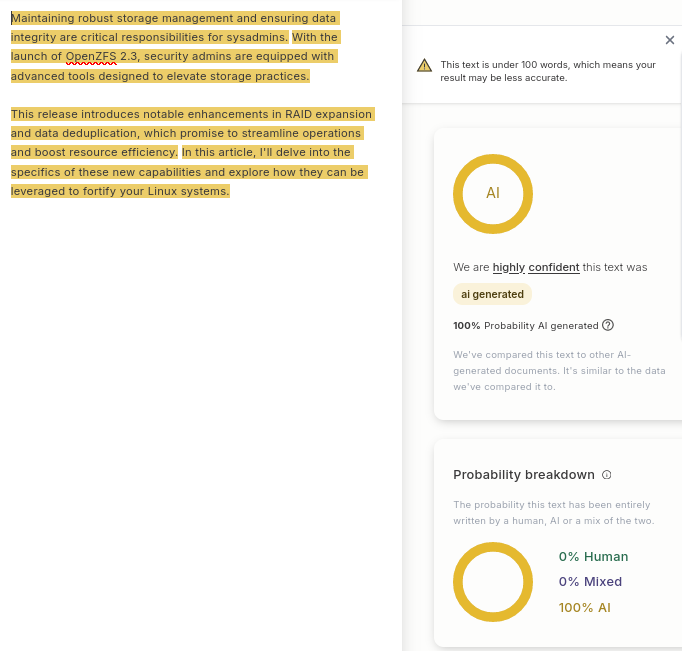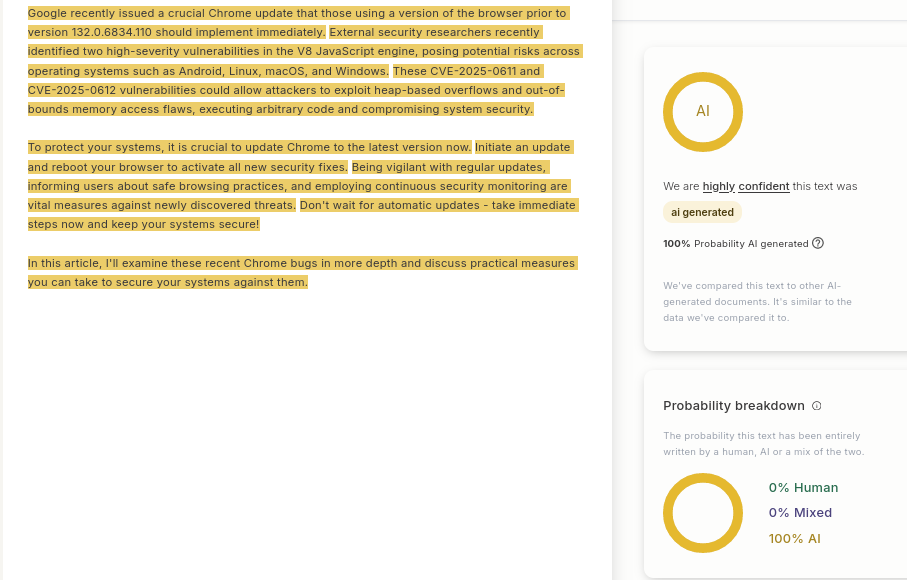Plagiarism at LinuxSecurity.com, Piggybacking Other People's Hard Work and Googlebombing "Linux"
Published 2 days ago by George V. Neville-Neil: (relevant because LinuxSecurity.com is "Drunk on Chatbots", as we put it yesterday, using a similar metaphor without even knowing about Neville-Neil's good article)
YESTERDAY LinuxSecurity.com had two 'articles'. Scare quotes, yes, as both were fake*. Here's proof of that. The first was googlebombing "Linux" and "security" (the usual SEO by the rogue LinuxSecurity.com):
Did they publish this unsupervised? How did they not notice this bizarre author's name? As their 'training set' (articles to plagiarise) they could use Phoronix.com or any of the picks found in [1, 2]. Not only are they late, they're also unoriginal and slapping bots at it:
If that's not bad enough, the only other article that day was also LLM slop:
They are googlebombing Google, and worse yet, they leverage bots to do this:
Google should really blacklist and delist this site. It has become a spamfarm with a misleading name: LinuxSecurity.
This site is a parasite that lessens the incentive to cover Linux and generally worsens Google search results, leading people to pure junk pages (plagiarists on the booze). █
_____
* The term may be vague if not ambiguous, so it's worth explaining what we mean by the 'fake' epithet; one associate insists that it should be clarified so as to mention LLM-generated slop, which in simple terms means that some algorithm scrapes other people's real work and then rephrases, rearranges, or fuses bits together (like image fusion but with words). It does not summarise or improve of infer anything. It's just doing mindless word-based analysis and typically spews out something that is a lot less accurate than the originals but is probably (at least) grammatically-correct, so to many observers it would seem legitimate and credible. Shallow looks can deceive and LLM slop is all about deceit. It compensates for its lack of merit by over-using electricity and producing a load of junk (low-quality slop in large quantities, exhausting human capacity to weed out the spread).




![[SEO spam] Don't Delay: Google Releases Chrome Update Addressing Serious Security Vulns](/i/2025/01/SEO-spam-google.png)
